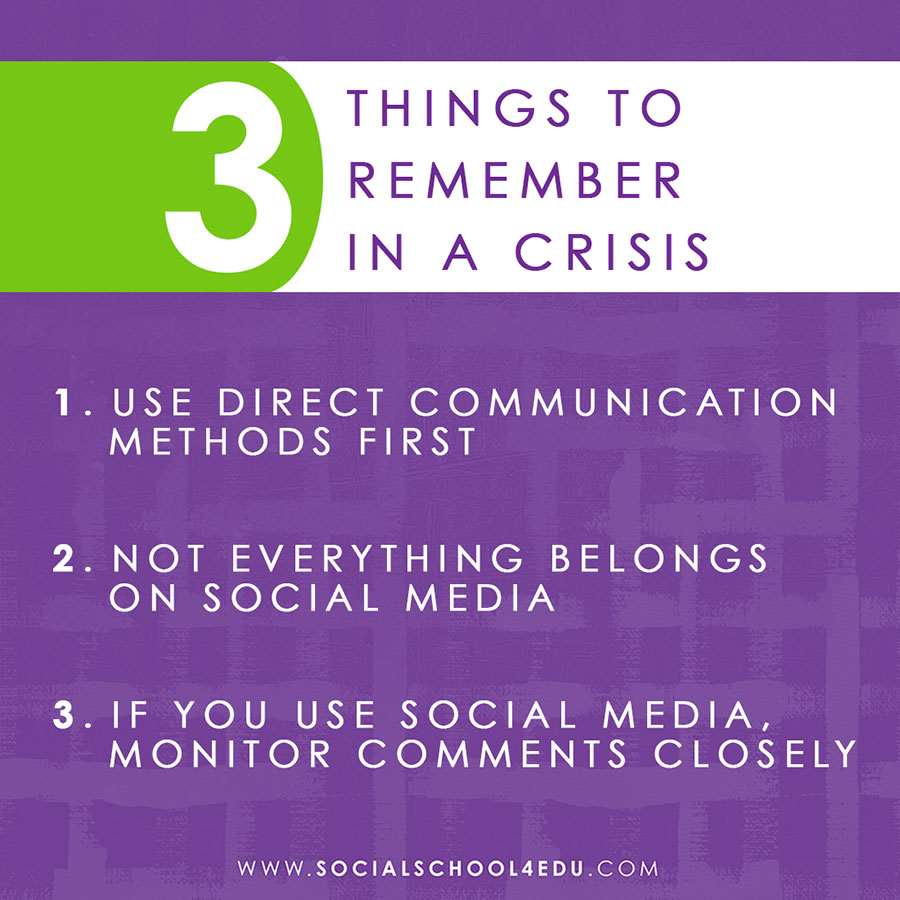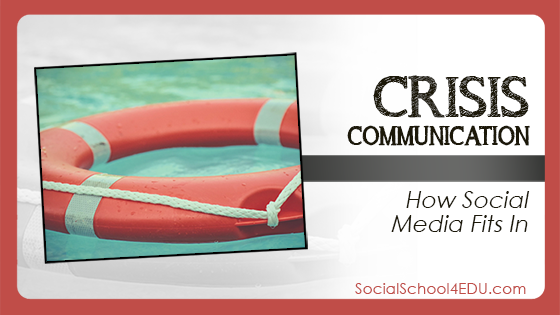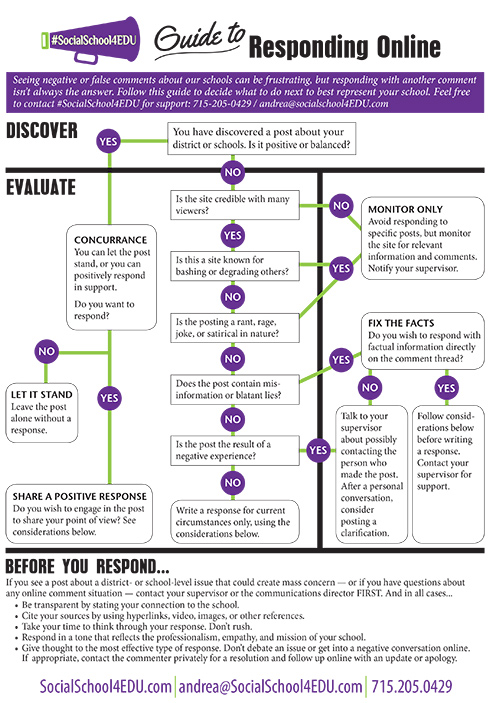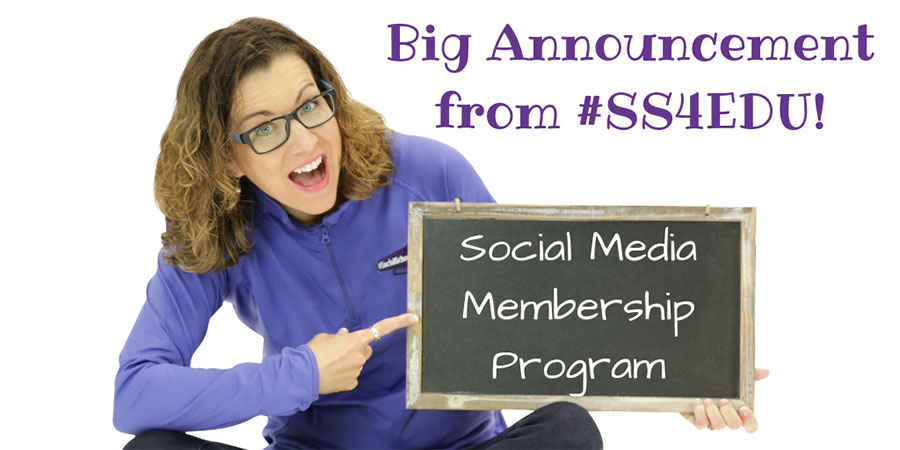Communicating during a crisis is a challenge. Social media may or may not play a role in your communication strategy. Since we have worked through crises with districts from across the country, we know that it is important to have a plan before a crisis occurs.
There are three important things to remember:
- Direct communication with your families is best.
Use your district’s messaging system to keep families in the loop during a crisis. This is the only way you know that you are reaching each and every parent/guardian.
Even though social media is widely used by students and adults of all ages, it’s important to remember that not everyone is on social media. More importantly, not every post on your page is seen by everyone who follows your Facebook page or other platforms.
This is why your direct communication methods are best when delivering information during a crisis.
- Not everything should be on social media.
By posting on social media, you must consider that you’ll be inviting comments from those outside of your community. Social media is primarily used for celebrations. Think rainbows and unicorns!
If your direct communication methods fail you (been there), or you have another reason for wanting to get information out to the entire community (done that), then social media may be used to get your message out. You obviously realize that any social media user has the ability to see your post and comment on the situation, so keep that in mind with your message. - Once a post is made, comments must be monitored closely.
Things can quickly spin out of control with questions, accusations, and more. Assigning someone within your district to closely monitor comments is crucial. Once the post is made, it is important to allocate someone with access to your social media platforms to watch for comments, questions, and other activity. They should have notifications enabled so that they see the activity as it happens.

Sometimes a crisis situation can result from activity on social media. A wayward comment is made, two students start interacting back and forth on a post, or, even more grave, a threat is made against a staff member. Your social media manager should be tracking comments throughout evenings and weekends. That is what the team at #SocialSchool4EDU does for our partner schools.
If this type of situation pops up, it’s important to spring into action as well. We rely heavily on our commenting guidelines when it comes to hiding or removing comments. That is our point of reference when dealing with those situations. Often school leaders will reach out directly to social media users if questionable comments are made. It’s never a wise choice to get into a war of words on social media! Taking it offline can help remedy situations. This helpful guide may help as well.
If you are looking for more guidance when it comes to social media and crisis situations, there is a recorded webinar on this topic that can be accessed by members only. If you are interested in joining us, learn more here!




